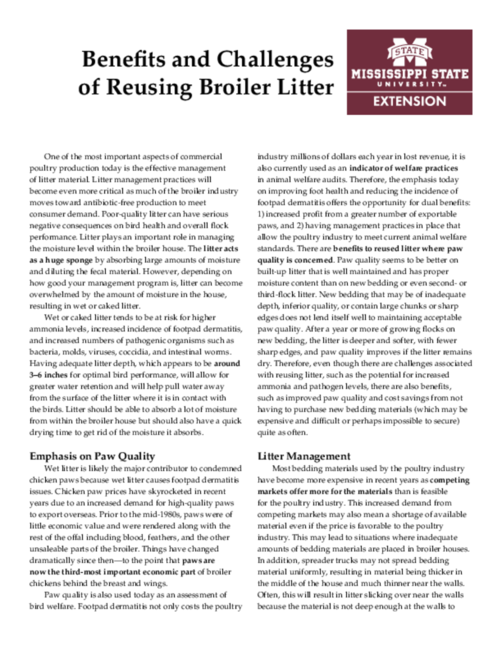P3066
Benefits and Challenges of Reusing Broiler Litter
One of the most important aspects of commercial poultry production today is the effective management of litter material. Litter management practices will become even more critical as much of the broiler industry moves toward antibiotic-free production to meet consumer demand. Poor-quality litter can have serious negative consequences on bird health and overall flock performance. Litter plays an important role in managing the moisture level within the broiler house. The litter acts as a huge sponge by absorbing large amounts of moisture and diluting the fecal material. However, depending on how good your management program is, litter can become overwhelmed by the amount of moisture in the house, resulting in wet or caked litter.
Wet or caked litter tends to be at risk for higher ammonia levels, increased incidence of footpad dermatitis, and increased numbers of pathogenic organisms such as bacteria, molds, viruses, coccidia, and intestinal worms. Having adequate litter depth, which appears to be around 3–6 inches for optimal bird performance, will allow for greater water retention and will help pull water away from the surface of the litter where it is in contact with the birds. Litter should be able to absorb a lot of moisture from within the broiler house but should also have a quick drying time to get rid of the moisture it absorbs.
Download the PDF above to read more.
The Mississippi State University Extension Service is working to ensure all web content is accessible to all users. If you need assistance accessing any of our content, please email the webteam or call 662-325-2262.
Authors
-
 Assistant Teaching Professor
Assistant Teaching Professor- Poultry Science
